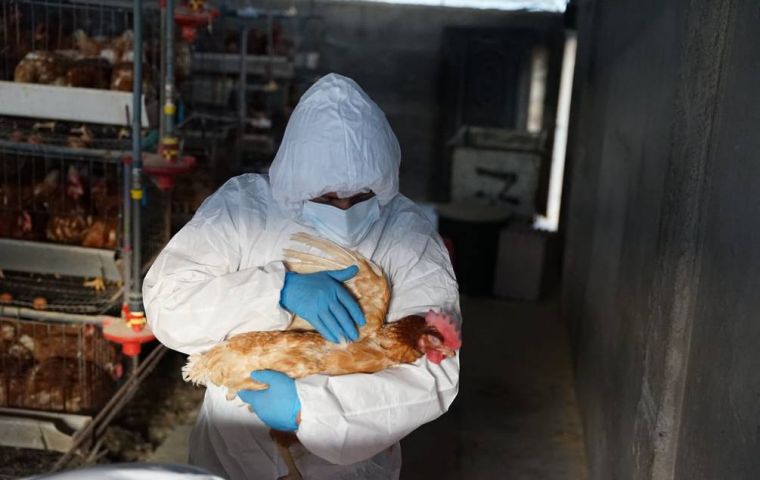MercoPress. South Atlantic News Agency
First human patient with avian flu reported in Ecuador
 The consumption of chicken and eggs poses no risk to human health, the authorities insisted
The consumption of chicken and eggs poses no risk to human health, the authorities insisted Ecuadorian health authorities have confirmed the first case of avian influenza in a human patient. The Ministry of Public Health (MSP) announced it was a 9-year-old girl who had been in contact with infected birds in the province of Bolivar.
The first case of influenza A-H5 (avian flu) in the country was detected as the Agency for Regulation and Control of Phytosanitary and Zoosanitary executed epidemiological surveillance tasks, the National Institute of Research and Public Health (INSPI) confirmed.
The MSP also reported that the infected girl is hospitalized in Quito in stable condition. The child's relatives were subjected to a PCR test in order to prevent the spread of the disease.
Local authorities stressed that no other human case had been reported and underlined the importance of people strengthening hygienic measures such as hand washing, the use of masks, and flu vaccination while insisting that the consumption of chicken and eggs posed no risk to human health. Vaccination against human influenza has been upped among people in contact with poultry.
The contagion occurs after the Ministry of Agriculture reported on Monday the first case of avian flu in poultry in a house in Bolivar, for which about 20 hens were culled. Since the detection of the H5N1 variant at the end of November, an animal health emergency was declared in order to monitor the affected area.
“It is presumed that the infection was caused by direct contact with birds carrying the virus,” the health ministry said. “So far, no other human cases have been recorded,” it added.
The authorities also urged the population to go to the nearest healthcare center in case of symptoms such as fever, cough, and a sore throat, as well as to report cases of farms or homes where there are sick and dead birds.
On November 30, Ecuador declared a nationwide animal health emergency for 90 days following the detection of the highly pathogenic avian influenza virus. Under this measure, the transportation of poultry and by-products such as eggs from farms affected by the outbreak was banned, while as part of the safety protocol, some 180,000 animals were to be culled.




Top Comments
Disclaimer & comment rulesCommenting for this story is now closed.
If you have a Facebook account, become a fan and comment on our Facebook Page!